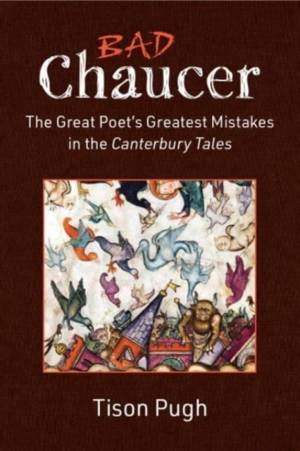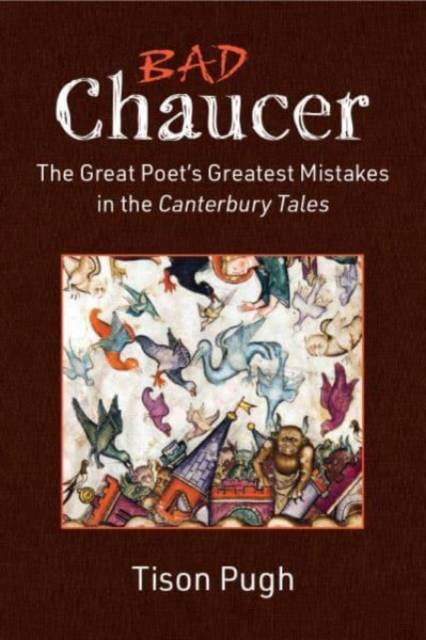
Door een staking bij bpost kan je online bestelling op dit moment iets langer onderweg zijn dan voorzien. Dringend iets nodig? Onze winkels ontvangen jou met open armen!
- Afhalen na 1 uur in een winkel met voorraad
- Gratis thuislevering in België vanaf € 30
- Ruim aanbod met 7 miljoen producten
Door een staking bij bpost kan je online bestelling op dit moment iets langer onderweg zijn dan voorzien. Dringend iets nodig? Onze winkels ontvangen jou met open armen!
- Afhalen na 1 uur in een winkel met voorraad
- Gratis thuislevering in België vanaf € 30
- Ruim aanbod met 7 miljoen producten
Zoeken
Bad Chaucer
The Great Poet's Greatest Mistakes in the Canterbury Tales
Tison Pugh
Hardcover | Engels
€ 41,95
+ 83 punten
Omschrijving
Acclaimed for centuries as the "Father of English Literature," Geoffrey Chaucer enjoys widespread and effusive praise for his classic Canterbury Tales--and rightfully so. Still, even the greatest of authors cannot claim perfection, and so Bad Chaucer: The Great Poet's Greatest Mistakes in the Canterbury Tales analyzes his various missteps, missed opportunities, and other blunders in this peerless masterpiece. From a vexing catalog of trees in the Knight's Tale to the flirtations with blasphemy in the Parson's Tale, this volume progresses through the Canterbury Tales story by story, tale by tale, pondering the most egregious failing of each in turn. Viewed collectively, Chaucer's troubles stem from clashing genres that disrupt interpretive clarity, themeless themes that undermine any message a tale might convey, mischaracterized characters who act without clear motivation, purposeful and otherwise pleasureful badness that show Chaucer's appreciation for the humor of bad literature, and outmoded perspectives that threaten to alienate modern readers. Badness is not always to be lamented but often celebrated, even cherished, for badness infuses artistic creations with the vitality that springs from varied responses, spirited engagements, and the inherent volatility of enjoying literature. On the whole, Bad Chaucer: The Great Poet's Greatest Mistakes in the Canterbury Tales swerves literary criticism in a new direction by examining the provocative question, for too long overlooked, of what this great author got wrong.
Specificaties
Betrokkenen
- Auteur(s):
- Uitgeverij:
Inhoud
- Aantal bladzijden:
- 274
- Taal:
- Engels
Eigenschappen
- Productcode (EAN):
- 9780472133444
- Verschijningsdatum:
- 17/01/2024
- Uitvoering:
- Hardcover
- Formaat:
- Genaaid
- Afmetingen:
- 158 mm x 229 mm
- Gewicht:
- 494 g

Alleen bij Standaard Boekhandel
+ 83 punten op je klantenkaart van Standaard Boekhandel
Beoordelingen
We publiceren alleen reviews die voldoen aan de voorwaarden voor reviews. Bekijk onze voorwaarden voor reviews.











